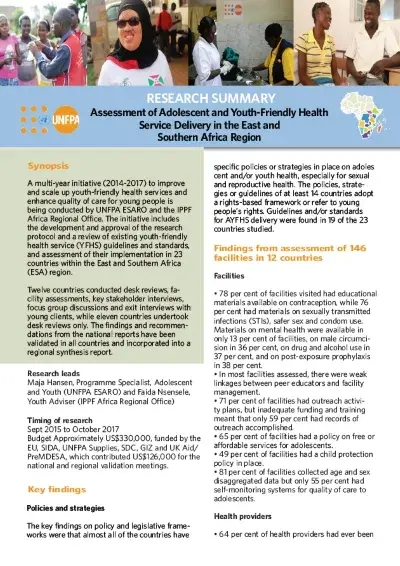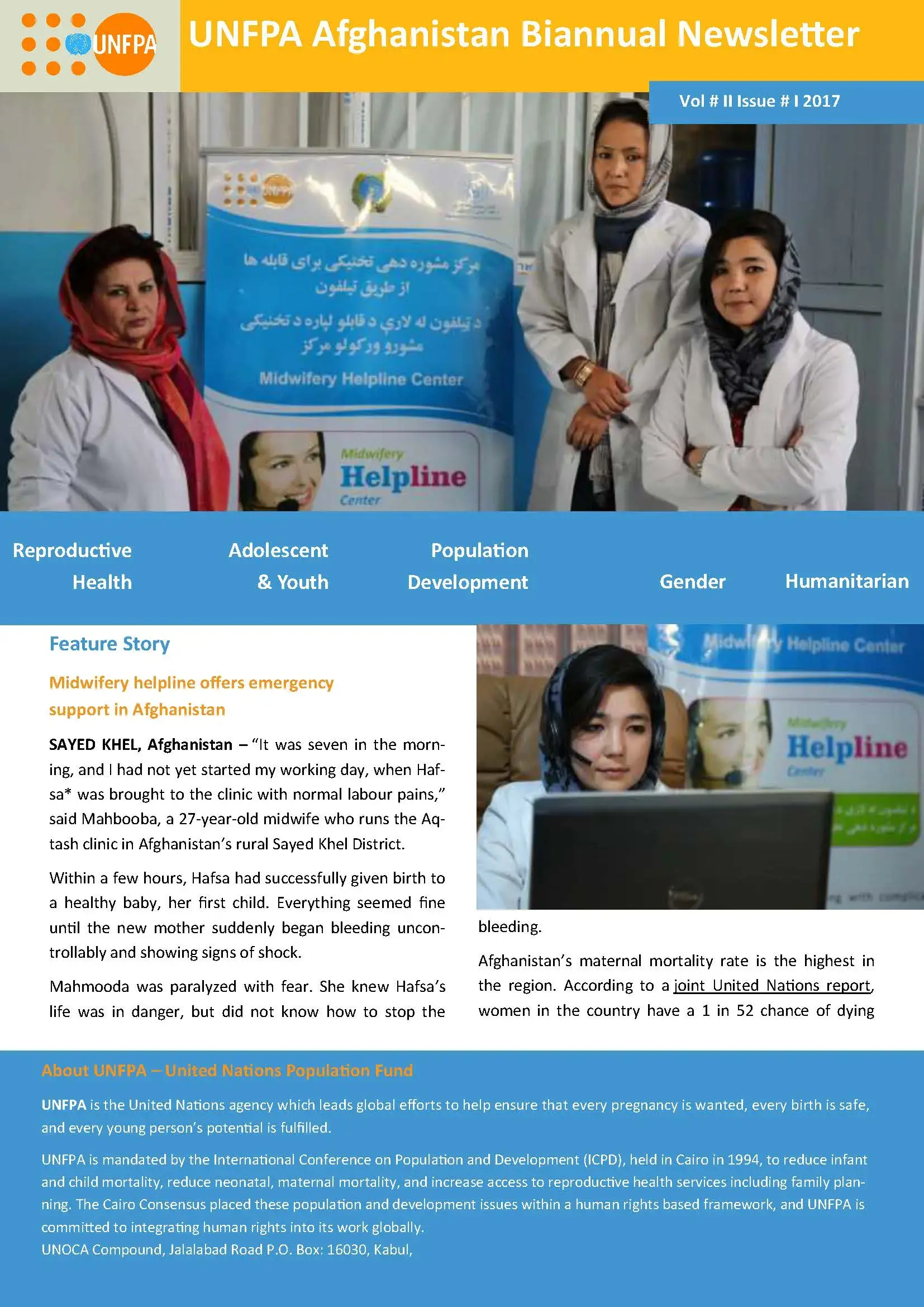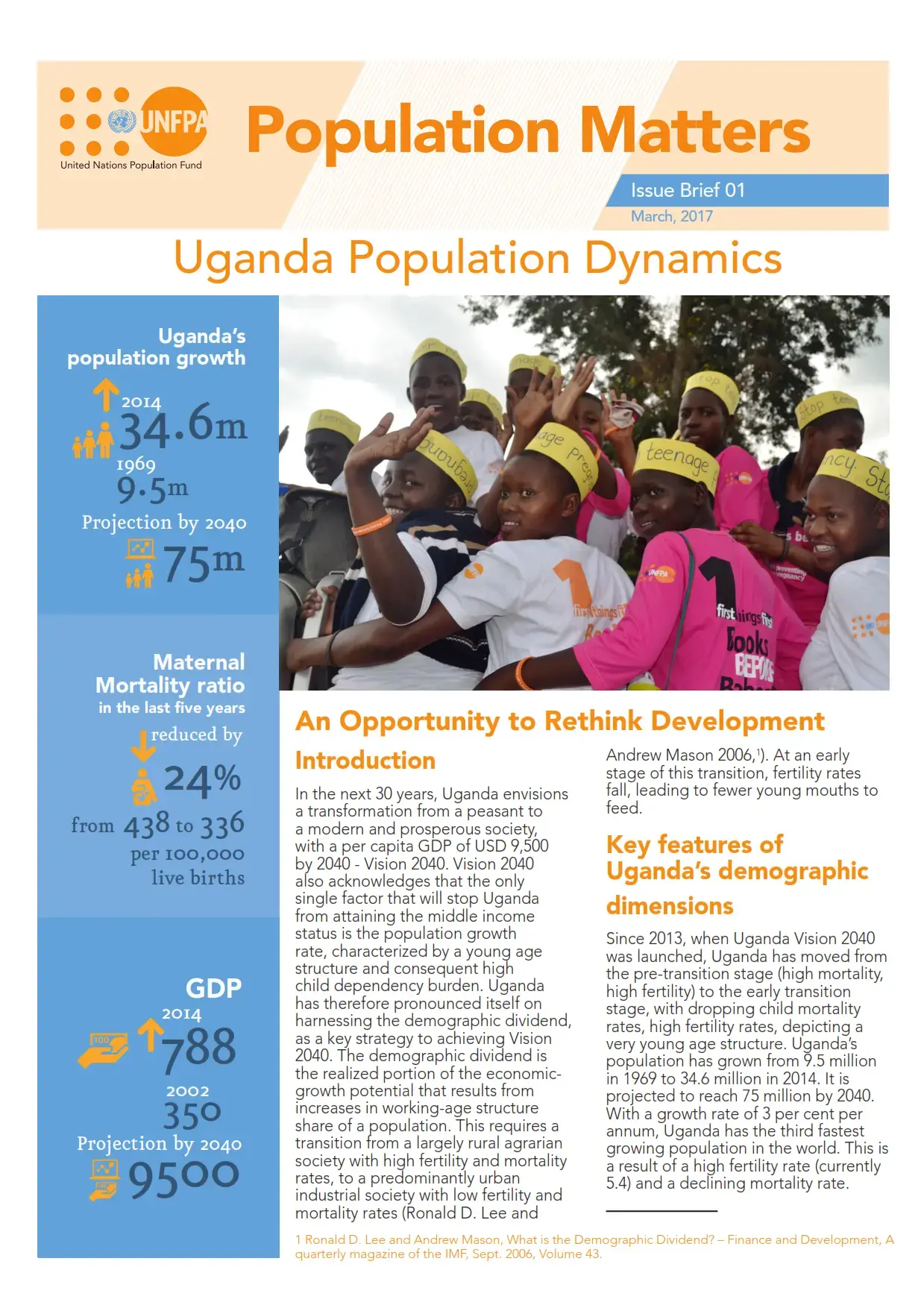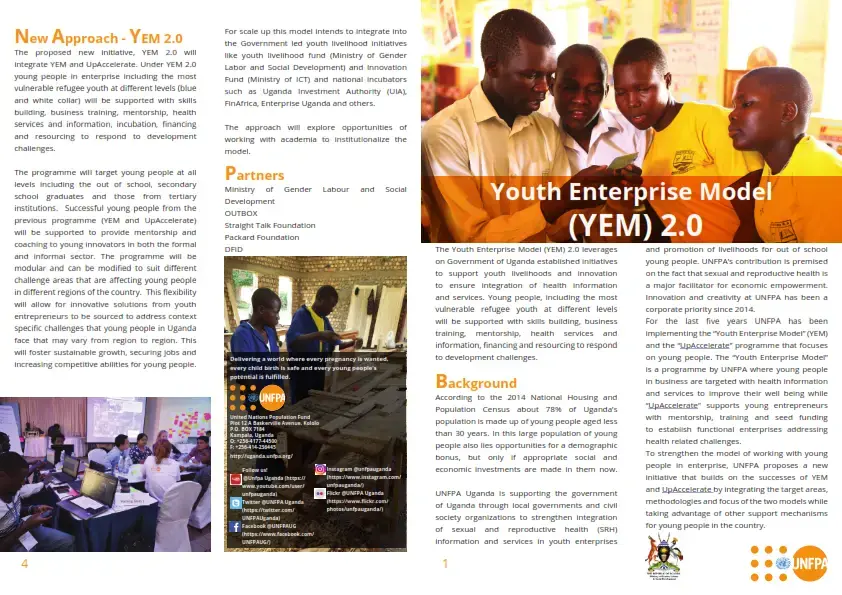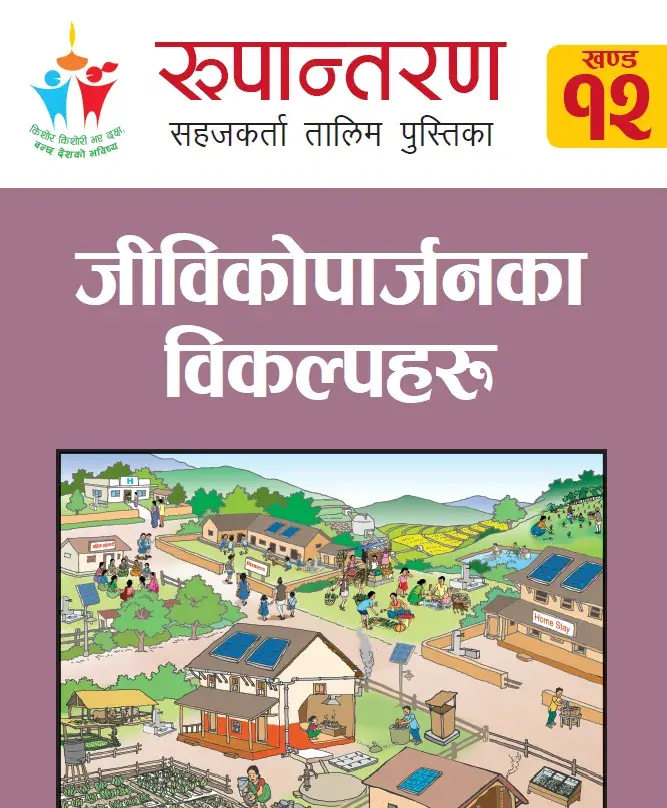No. of pages : 8
Publication date : 02/10/2017
Author : UNFPA Uganda
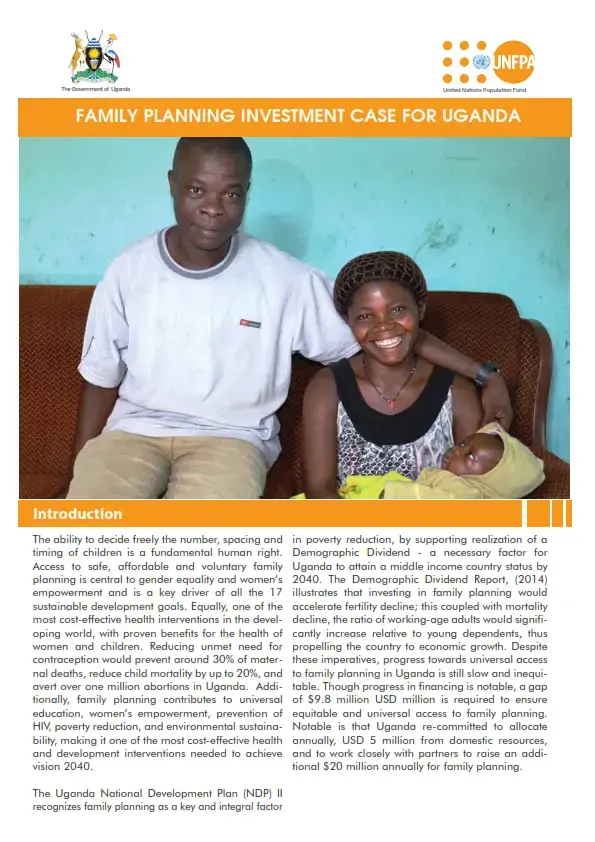
Empowering women to choose the number, timing, and spacing of their pregnancies is not only a matter of health and human rights but also touches on many multisectoral determinants vital to sustainable development, including women’s education and status in society. Without universal access to family planning and reproductive health, the impact and effectiveness of other interventions will be less, will cost more, and will take longer to achieve. The government of Uganda must make modern family planning an even higher priority to expand women’s method choice and uptake.

